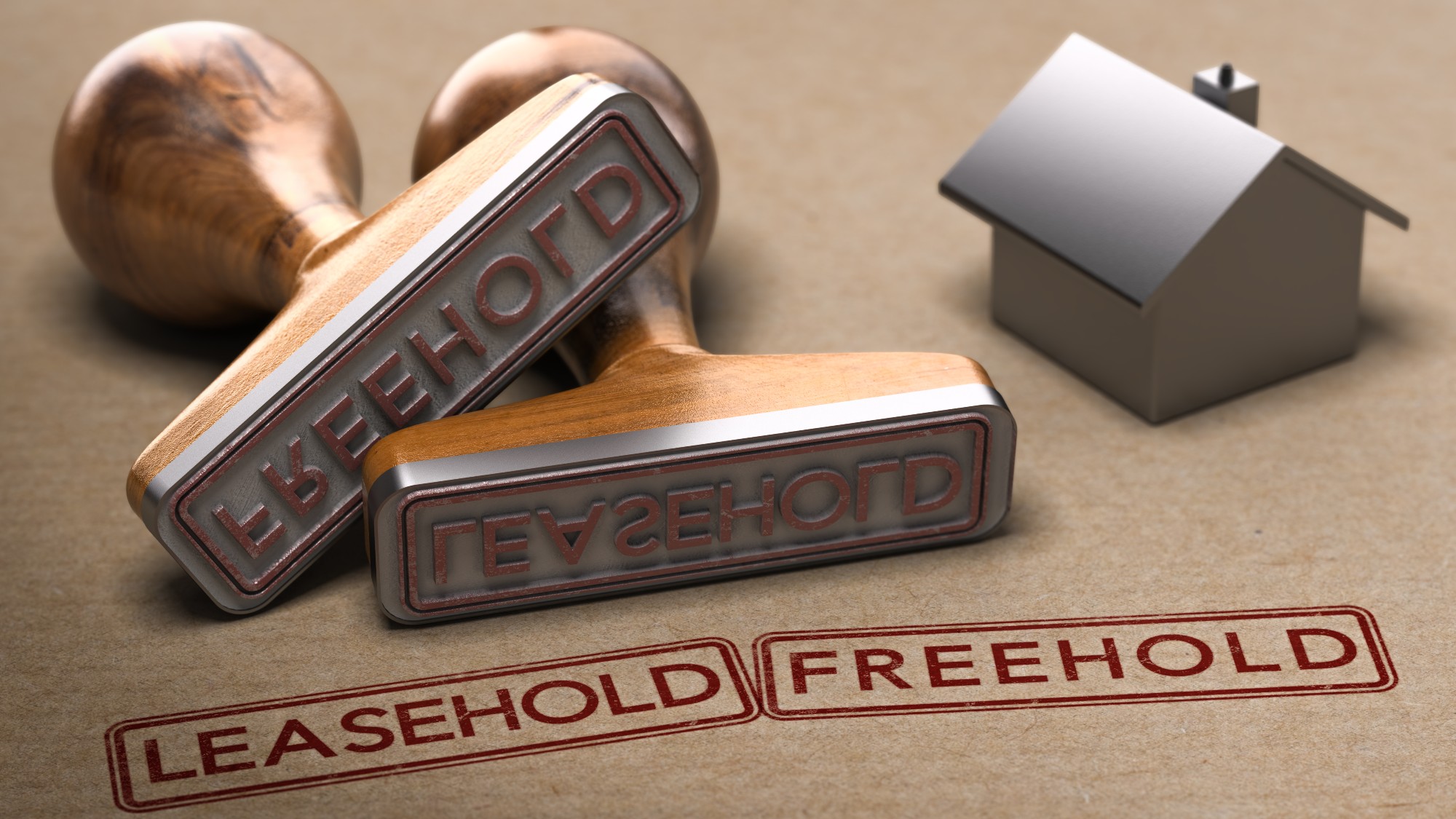How leasehold reforms could help homeowners
The government has introduced new legislation to address unfair fees and exploitation in the leasehold system

A free daily email with the biggest news stories of the day – and the best features from TheWeek.com
You are now subscribed
Your newsletter sign-up was successful
Millions of owners of leasehold flats and houses will be protected from high service charges and unfair treatment if the Leasehold and Freehold Reform Bill becomes law.
The bill, which was introduced in Parliament this week, is the "latest attempt to reform the leasehold system of property ownership", said MoneyWeek, after the government banned ground rents on new leases in 2022.
Housing Secretary Michael Gove described it as a "landmark moment" that would "slash unfair costs and crack down on exploitation" for millions of leaseholders.
The Week
Escape your echo chamber. Get the facts behind the news, plus analysis from multiple perspectives.

Sign up for The Week's Free Newsletters
From our morning news briefing to a weekly Good News Newsletter, get the best of The Week delivered directly to your inbox.
From our morning news briefing to a weekly Good News Newsletter, get the best of The Week delivered directly to your inbox.
But there are warnings about how effective the reforms could be, and if they will even be introduced before the general election next year.
What is leasehold?
Leasehold is a form of home ownership where you own the property but not the land, unlike freehold where you own both up to a set boundary.
Ground rent and service charges have to be paid to a managing agent or freeholder, and this person is responsible for the maintenance and repair of communal areas.
Almost five million homes in England are owned as leasehold, government figures show, of which 70% are flats and 30% are houses.
A free daily email with the biggest news stories of the day – and the best features from TheWeek.com
The sector has become "beset with issues", though, said MoneySavingExpert, due to "extortionate ground rents", "expensive" service charges and a "complicated" system if you want to extend a lease.
There may also be restrictions on what you can do in your home, such as having pets and the high service fees and costs of an extension, especially if a lease falls below 80 years. This means thousands are stuck in homes "they cannot afford to continue living in and cannot sell", said estate agency trade body Propertymark.
What are the leasehold reforms?
The Leasehold and Freehold Reform Bill aims to address these issues. The legislation is designed to make it "easier and cheaper" for leaseholders to purchase their freehold and will increase lease extension terms to 990 years, said the Department for Levelling Up, Housing and Communities.
It will also "rebalance the legal costs regime" by scrapping requirements that leaseholders pay their freeholders managing costs for an extension and will give leaseholders access to a redress scheme to challenge fees.
Will the leasehold reforms help homeowners?
The current leasehold system is "unfair and outdated", said Propertymark, and reforms would "deliver significant new rights and protections, slash unfair costs and crack down on exploitation".
It will give leaseholders "more rights and greater protections", said the i news site, but there are concerns about how effective it will be.
The bill bans the sale of new leasehold houses "but not flats", the news site added, an issue that Conservative MPs may try to amend.
While the bill aims to "empower leaseholders", it could have "unintended negative consequences", said Mark Andrew, senior lecturer in housing economics at City, University of London, in The Conversation.
He warned that if short leaseholds become "much cheaper to extend" then they will rise "significantly in value", and more demand for longer existing leases could also push prices up further, worsening housing affordability.
There are also doubts about whether these reforms can be introduced before a general election takes place, probably next year.
But Gove told the BBC that he is "absolutely confident" that the reforms will pass "by the time of a general election". He said the measure has "widespread support" in the Commons and Lords.
Marc Shoffman is an NCTJ-qualified award-winning freelance journalist, specialising in business, property and personal finance. He has a BA in multimedia journalism from Bournemouth University and a master’s in financial journalism from City University, London. His career began at FT Business trade publication Financial Adviser, during the 2008 banking crash. In 2013, he moved to MailOnline’s personal finance section This is Money, where he covered topics ranging from mortgages and pensions to investments and even a bit of Bitcoin. Since going freelance in 2016, his work has appeared in MoneyWeek, The Times, The Mail on Sunday and on the i news site.
-
 What's a bridge loan and how could it make buying your next home possible?
What's a bridge loan and how could it make buying your next home possible?The Explainer This type of loan has both pros and cons
-
 Housing costs: Is deregulation the answer?
Housing costs: Is deregulation the answer?Feature Washington, D.C.’s NoMa neighborhood is now leading the nation in new apartment construction
-
 What to do if you want to move but don't want to give up your low mortgage rate
What to do if you want to move but don't want to give up your low mortgage ratethe explainer 30-year mortgage rates are currently averaging 7% — and homeowners who secured rates closer to 3% during the pandemic are reluctant to sell their homes
-
 What taxes do you pay on a home sale?
What taxes do you pay on a home sale?The Explainer Some people — though not many — will need to pay capital gains taxes upon selling their home
-
 Hoping to sell your house in 2025? Here's what to expect.
Hoping to sell your house in 2025? Here's what to expect.The Explainer Will the housing market favor buyers or sellers this year?
-
 The caravan mis-selling 'national scandal'
The caravan mis-selling 'national scandal'In The Spotlight Legal action begins after people lose life savings and are forced to sell homes to cover 'hidden costs'
-
 How can you save on homeowners insurance?
How can you save on homeowners insurance?The Explainer With the rise in extreme weather, house protection is a non-negotiable
-
 The rise of rental rewards, a new form of concession
The rise of rental rewards, a new form of concessionThe Explainer Landlords are getting in on the rewards craze, offering loyalty programs for paying your rent


